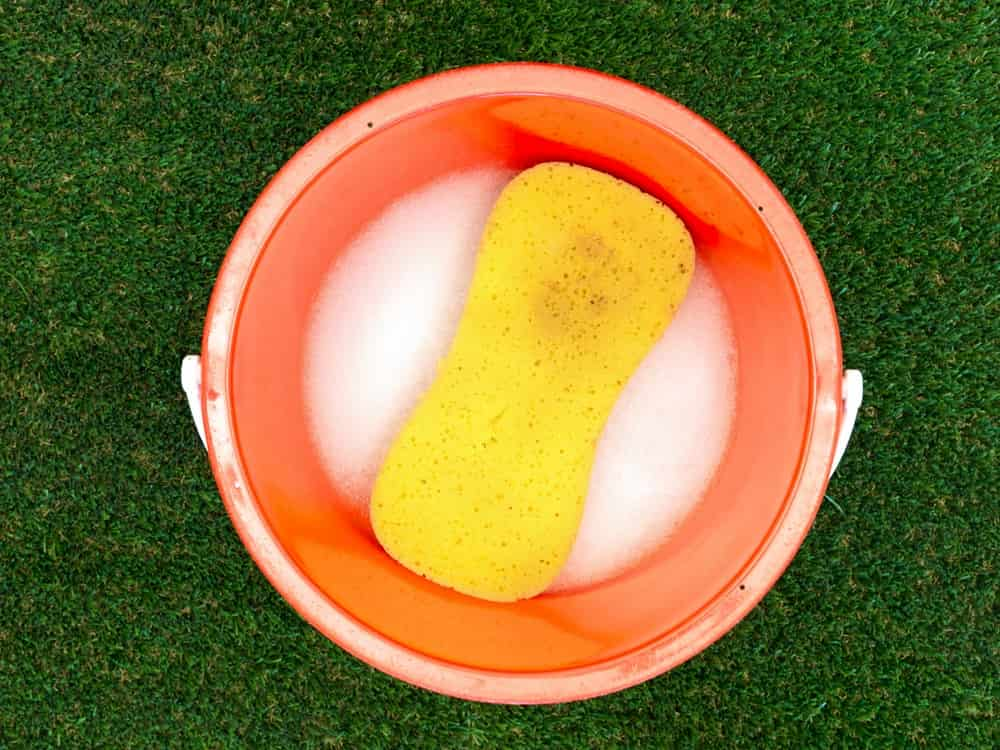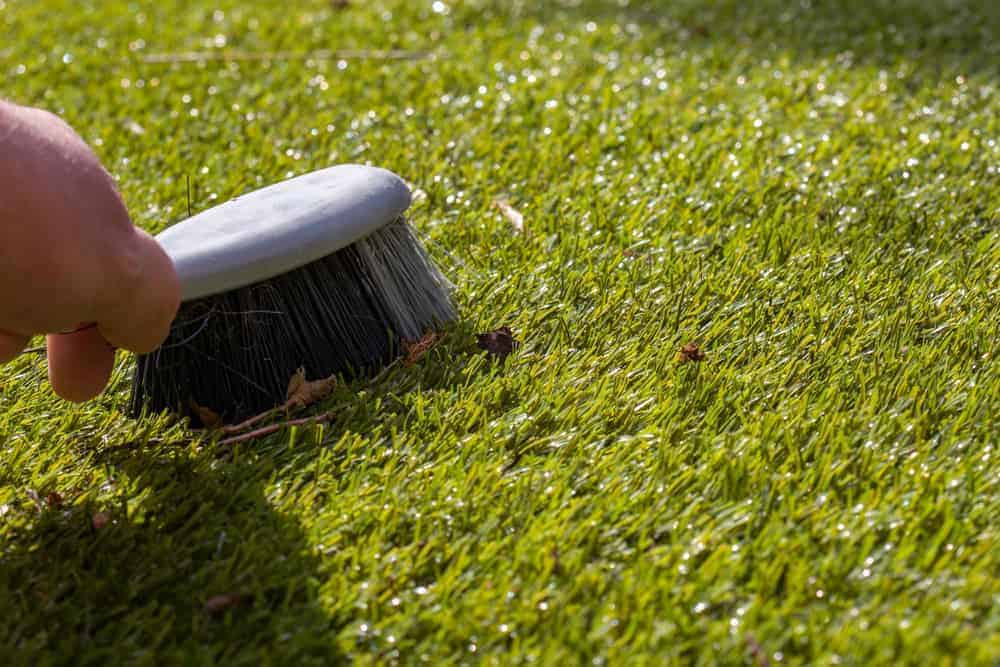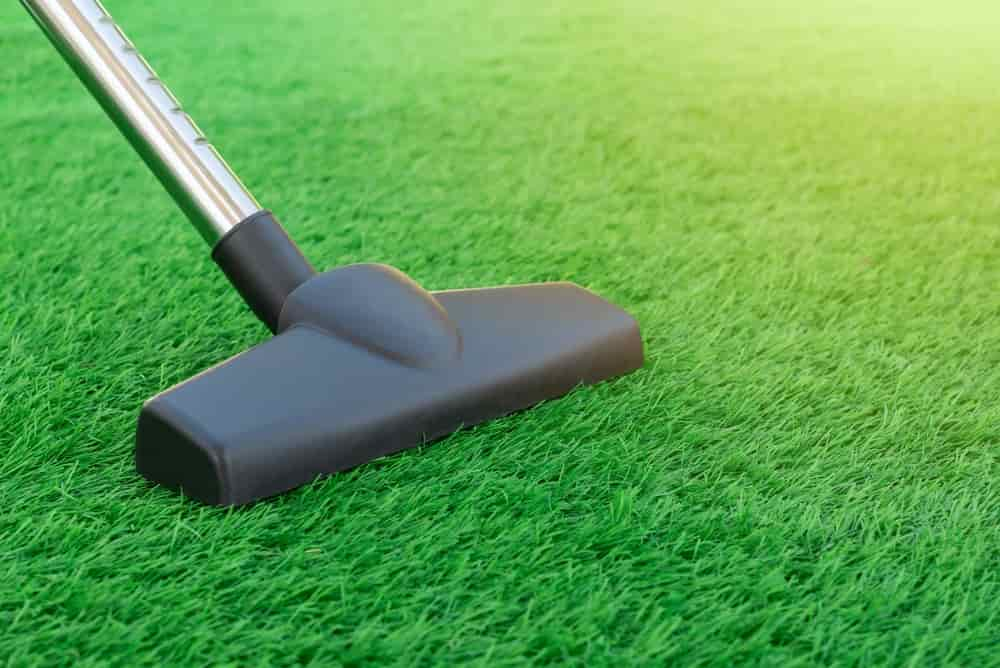3 min read
Last updated: November 5, 2024
Artificial lawns are designed for durability, able to withstand various weather conditions and resist wear and tear. They are an ideal solution for homeowners seeking a low-maintenance landscaping option that remains attractive throughout the year. By reducing landscaping maintenance to a minimum, they become a popular choice for many homeowners. However, to maximize the longevity and appearance of your artificial lawn, a little maintenance is still required.
General Cleaning for Your Artificial Lawn
To maintain a clean and vibrant lawn, regularly remove dust, dirt, leaves, and other debris. Use a flexible lawn rake or a broom with stiff bristles, but avoid brushes with steel bristles as they can damage the grass fibers. Although small debris won’t harm the grass or sink into the soil, removing it will keep your lawn looking clean and green.

Artificial grass can endure harsh weather, including snow and ice. However, during colder seasons, it’s wise to keep it clean. Implementing a drainage system ensures that snow can naturally drain away like rainwater. If you need to clear snow, be cautious. Avoid using sharp-edged tools like shovels that can damage the grass.
Cleaning Spillages
Spillages are inevitable, especially during garden parties and gatherings. When they occur, avoid using harsh chemicals or cleaning agents like bleach, which can discolour or damage the lawn. Instead, simply wash away spillages with water to maintain the lawn’s appearance.

Managing Pet Waste
Pets often enjoy playing on synthetic lawns, which can lead to occasional accidents. If your pet uses the lawn as a toilet, act quickly but calmly. Remove solid waste as you would on a walk, using a bag or scoop. For liquid waste, rinse the area with water to prevent staining. To eliminate odours, consider using ZeoZorb, a product designed to neutralize pet waste smells. Additionally, explore the dog-friendly artificial grass range specifically designed for pet owners.
Periodic Deep Cleaning
While regular cleaning is sufficient to maintain your artificial lawn’s appearance, periodic deep cleaning can help ensure it remains in top condition. Use a garden hose to thoroughly rinse the grass, removing any dust or pollen that may have settled. For more stubborn dirt or stains, a mild detergent mixed with water can be used. Gently scrub the affected area with a soft brush, then rinse thoroughly with water to remove any soap residue.

Preventing Mold and Mildew
In shaded or damp areas, artificial lawns can occasionally develop mould or mildew. To prevent this, ensure proper drainage and avoid overwatering. If mould or mildew does appear, treat it with a mixture of vinegar and water, spraying the affected area and then rinsing thoroughly. Regular inspection and cleaning can help prevent mold and mildew from becoming a persistent problem.
Addressing Wear and Tear
Even though artificial grass is durable, certain high-traffic areas might show signs of wear over time. To keep your lawn looking even and fresh, brush the grass fibres against the grain to lift them back up. If any sections become damaged, they can often be repaired by replacing individual patches of turf, ensuring the overall appearance remains seamless.
Artificial lawns represent a significant investment, and with proper care, they can maintain their beauty and functionality for many years. We are the UK’s premier supplier of artificial grass and we won’t be beaten on price, so be sure to get in touch today for all your artificial lawn needs.
Feel free to contact our friendly team today, browse our extensive range of artificial grass or request free samples to experience the quality and appearance of our products firsthand
Related Category: Installation & Maintenance
